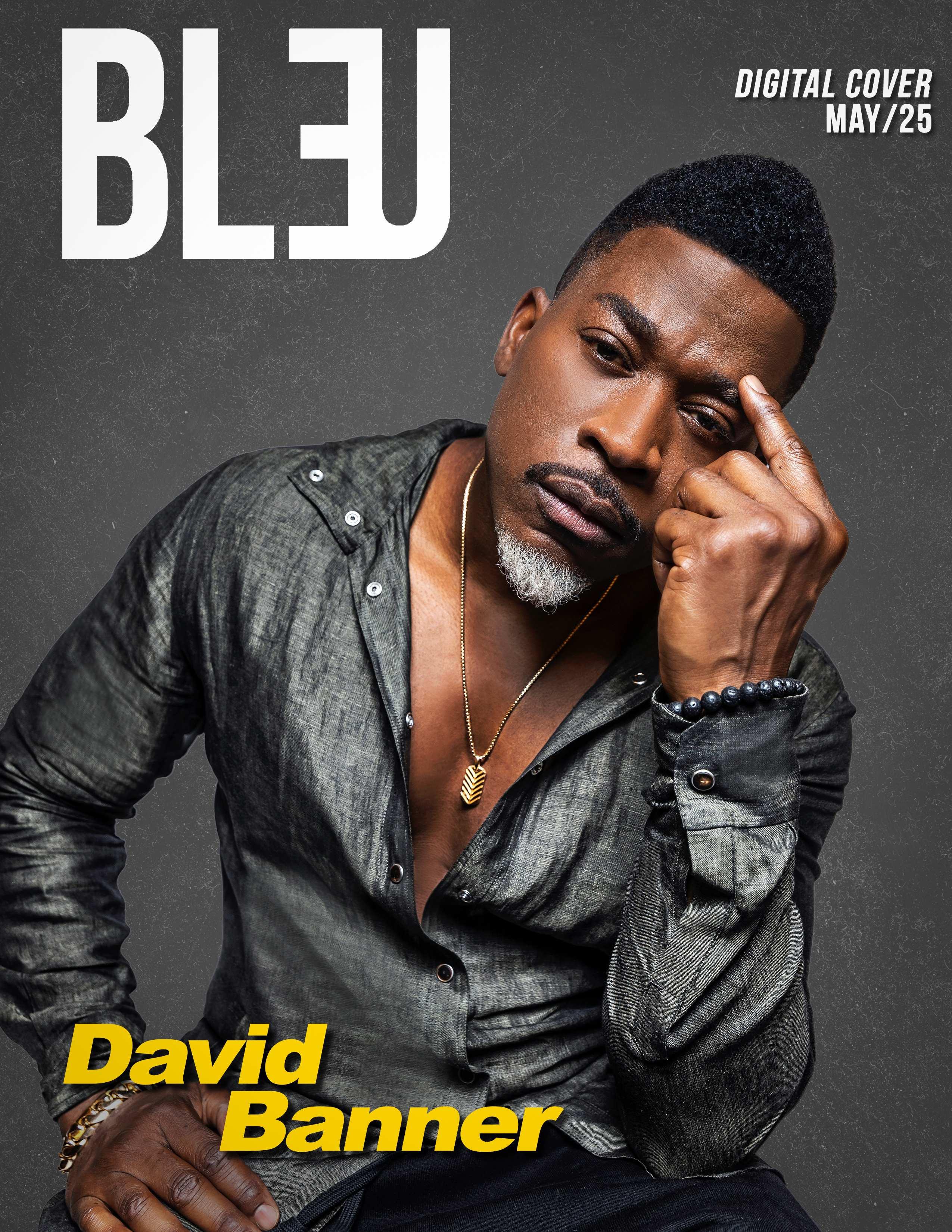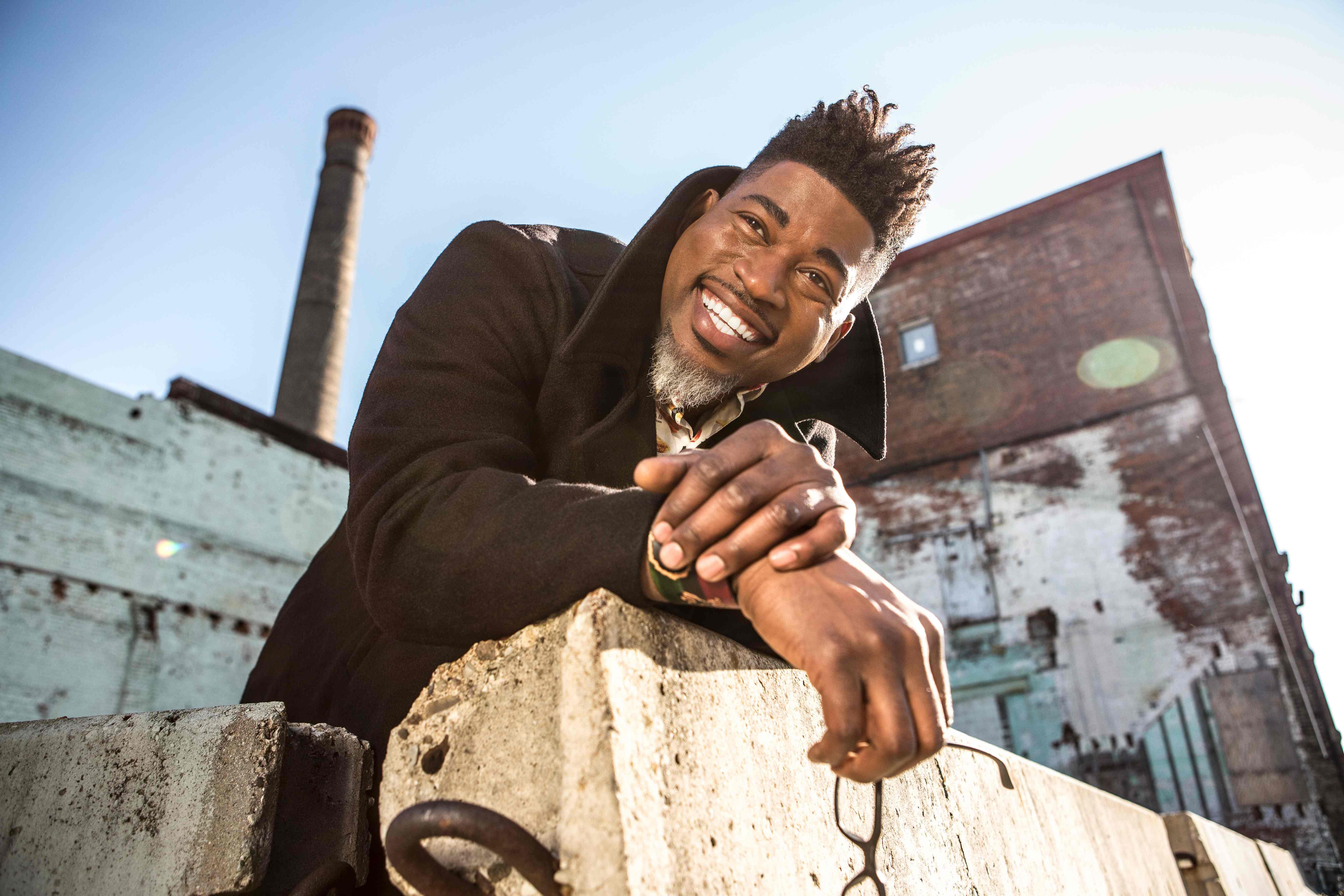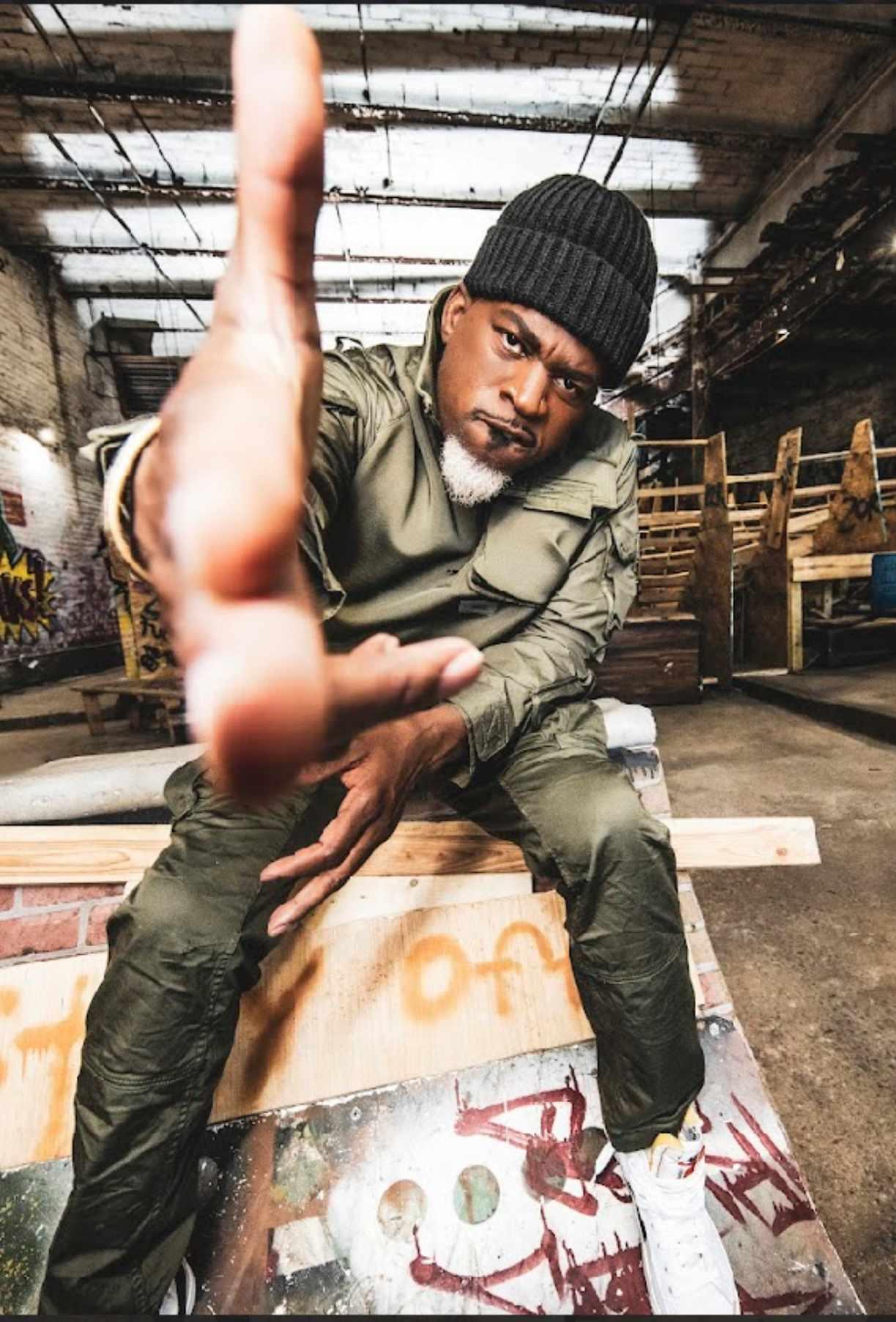
The Gospel According to David Banner
Not ambition, but assignment. Not performance, but purpose. This is the gospel according to David Banner.
By Pretty HonoreMay 27 2025, Published 1:00 p.m. ET

David Banner's voice echoes a thousand rebirths—unshaken and deliberate. Talking to the rapper feels more like stepping into a sanctuary.
“Sometimes you are so full of God, you are so blessed, that you’re ahead of your time," he says with clarity and quiet confidence.
An institution in and of himself, Banner’s life was built by design, brick by brick, beat by beat, bar by bar.
Raised in Jackson, Mississippi, Banner was born to religious parents who instilled a strong work ethic in the would-be entertainer. After high school, he enrolled at Southern University to pursue a business degree, selling CDs out of the trunk of his car and working at a grocery store to make ends meet until he graduated.
While he excelled in his major, ranking in the top five in his class at the University of Maryland, he ultimately dropped out of the master's program to put his business acumen to use and pursue music full-time.
Early in his career, he produced groundbreaking singles like Trick Daddy’s “Thug Holiday,” and T.I.’s “Rubberband Man.”
Banner also found success in the booth, delivering Mississippi: The Album, featuring “Cadillacs on 22s” and “Like a Pimp” in 2003. He followed up with his chart-topping singles “Get Like Me” and “Shawty Say,” continuing to put Mississippi on the map and cementing himself as one of the southern rap game’s most formidable contenders during an era that reshaped the geography of hip-hop.
As his list of production credits grew, so did his conviction.
Through his pursuits in music, activism, TV, and film, Banner furthered his ambitions and obeyed what he believed to be his calling. However, his path to success didn’t come without silence.

Seasons of his career left him disconnected from his spiritual center, sending him into a spiral of depression. David is candid about being blinded by blurred vision and the toll that fame took on his mental health.
“I only worry when I can’t hear God’s voice. That’s the problem. Like, that’s what almost sent me crazy when I was going through my depression is when I couldn’t hear God’s voice; when I didn’t have vision.“
He pauses. “People perish because of lack of vision."
Banner describes going through “the hardest time of his life,” and the shift in perspective that came when he reexamined his relationship with himself.
“I just decided that I was done suffering,” he says. “I was done. And I was going to take my own reality in my hands, and I did it.”
With the support of his therapist, Banner asked—and answered—the hard questions that had kept his happiness in bondage. “My therapist said, ‘You always talk about Black people. Why don't you show how you want Black people to be treated in the relationship that you have with yourself?’”
“People treat you exactly how you treat yourself.”
“When I was walking around being a martyr and I didn’t know that’s what I was doing, I realized people only brought me death. When I started demanding opulence, people brought me their money. People bring you exactly what you bring to yourself.”
With this revelation, Banner reclaimed his peace and reimagined his reality. No longer suffering in silence or performing in pain, he has been reincarnated with renewed purpose and precision.

“I really believe my career is just starting right now. I believe all the stuff that y'all love me for—that was just college for me. I'm really just getting started.”
Lately, Banner has shifted his focus to his acting career, exploring roles that reflect the same emotional complexities that he has learned to embrace within himself. In 2024, Banner starred alongside Samuel L. Jackson and Terrence Howard in Peacock’s limited series, Fight Night: Million Dollar Heist, where he delivered a masterful performance as Missouri Slim, a slick mob boss with a tight perm. In 2025, he made his debut as crime lord John LeBlanc on BET’s Family Business: New Orleans.
Banner says he isn’t afraid to play the bad guy because he believes that every villain has a backstory. “What acting has helped me do,” he says, “is be a little bit more patient with other human beings.”
Banner uses every role as an opportunity to reclaim the humanity that, historically, has been denied to Black men.
“A lot of times, when you're over 6 feet tall and you're not a comedian, they always try to make you a dope dealer, a preacher, a killer, or something. But what I decided that I was going to do is I was going to make every character that I play lovable—even when they're doing something that [people] deem as wrong. Especially Black men and women in America.”
Banner explains: “They take away our religion, they put us in bondage for over 350 years, take away our history, and then show the end result of our anger … and say, ‘Look at them,’ without telling the back story. Or trying to erase the back story.”
That’s the gospel according to David Banner—not perfection, but alignment. Not ambition, but assignment.
“I'm an artist—meant to be digested, sometimes misunderstood. That’s part of what I do. If we’re truly aligned with God, we’re often ahead of what others can create or even consume. My role is to stay in line with that; to keep myself clear, so my filter doesn’t cloud the divine message if I’m truly receiving one. I’m just trying to be a conduit.”
After more than two decades in the music industry, David's reputation precedes him. As an artist, activist, actor, and entrepreneur, he has used his platform to promote Black excellence and advocate for Black equity, both on the frontlines and behind the scenes of the entertainment industry. As a result, he’s garnered respect from a global fanbase.
"This African young lady said, ‘Do you know what we think about you?’ And I said, ‘What?’ She said, ‘You are one of the few that didn’t give your soul away,’” recalls Banner. "Whether she made it up herself or whether it was a small consensus of a group of people from the continent, I’m honored. And I’m looked at as a Black man who was able to keep—if not all—a piece of his culture, of his manhood, of his spirit, that warrior, fighting spirit."
“Our people have suffered. Our people have not received the things that I believe that they should or could have received. I want all of it—every bit of it that has been earned and that has been sacrificed for, so I can properly disperse it as I choose and how I see fit.”
Banner’s blueprint is layered with conviction, a living map leading a cultural renaissance that spans generations. More than reinvention, more than relevance—Banner’s career is legacy in motion, built brick by brick, beat by beat, and bar by bar.

